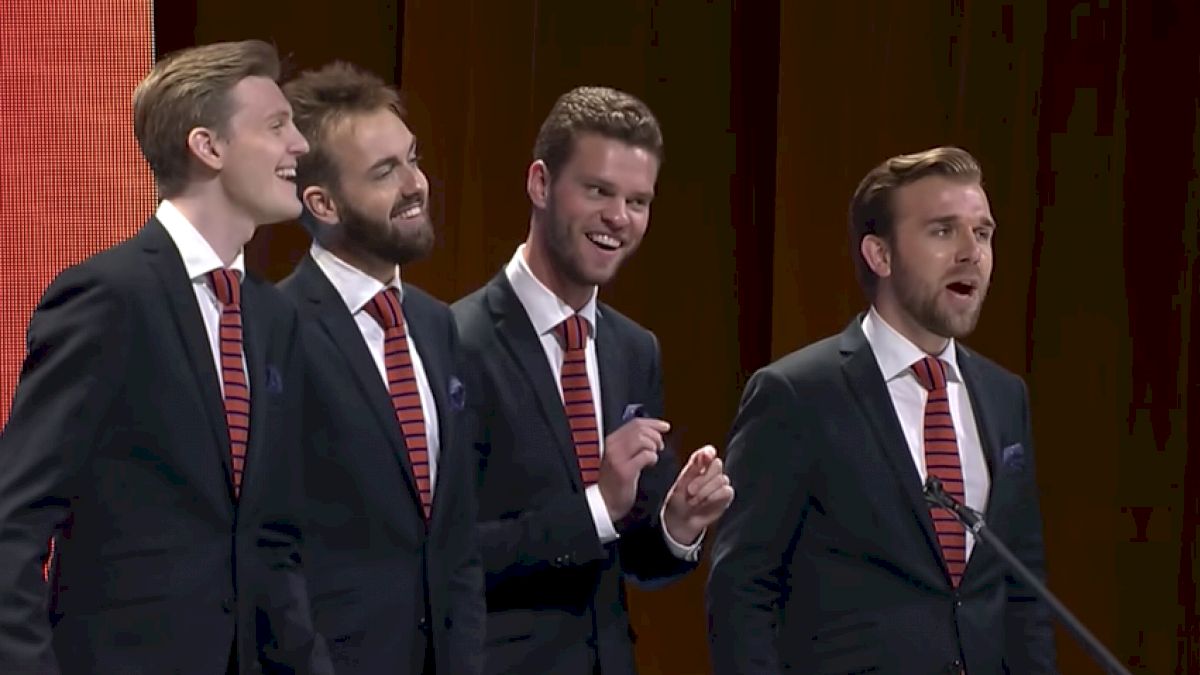BHS Singing Category: The Importance Of The Ensemble
BHS Singing Category: The Importance Of The Ensemble
We're digging a little deeper into the scoring system that will crown new BHS International Champions. Today we’re looking at the singing category.

BHS Orlando is almost here, and we’re here to help you dig a little deeper into the scoring system that will crown new International Champions. Today we’re looking at the third and final category: singing.
The full set of rules are available through Barbershop Harmony Society, and today we’re breaking down the singing category.
Check out the breakdown for music category and the performance category.
SINGING CATEGORY
Definition: the degree to which the performer achieves artistic singing in the barbershop style
“The best barbershop singing combines elements of technique and emotion to create an artistic result. Artistic singing is accomplished through precise intonation, a high degree of vocal skill and appropriate vocal expression, and a high level of unity and consistency within the ensemble. Mastering these elements creates a fullness and expansion of sound, and when combined with expressive vocal skills will convey a feeling of genuine emotion to support the message of the song.”
Watch BHS International LIVE only on FloVoice!
Here, the judges are essentially looking at the individual skill of each performer and how those skills work together to create the end result.
Rule No. 1: Sing well — in tune and with expression — and do it in a way that works well with your fellow performers.
Here are the specific things the singing judges are looking for:
Intonation
A hallmark of great barbershop singing is tuning more precisely than the tempered scale of an instrument, as voices have the ability to perfectly tune. To accomplish this, barbershop singers use melodic intonation (the notes for the melody) that remains true to the tonal center with just harmonic intonation (the notes for the non-melody). When the chords lock, the sound expands to include both over and undertones, creating that full, ringing sound that we all love.
Vocal Quality
High-quality singing is defined as well-supported, freely produced, and resonant. Judges want to hear a strong tone, produced without stress. Breath support is the foundation for well-supported singing, while resonance is created when a singer is able to produce the notes without any tension. The judges are also noting the use of effective vibrato, the absence of tremolo, and correct use of volume. It’s important to note that there’s no bonus here for selecting difficult pieces over an easier song — the level of execution is paramount.
Unity
Barbershop is, at its core, ensemble singing. Therefore, even the best voices in the world need to make adjustments to serve the music. The ability to match sounds, timbre, and diction all contribute to the singing score
Expansion Quality
The infamous “lock and ring.” The magic of barbershop comes from the ability to create more than four notes while only physically singing four notes. To do this, ensembles must use precise tuning produced with high-level vocal quality while carefully balancing the relationship of intervals and volume.
Vocal Expression
While the foundation of this art is quite technical, no one is moved by a robotic performance. Being able to execute at a high technical level is only part of the equation. The other piece is creating a genuine emotional experience with your delivery. Use of enunciation, tone, and variation to elicit meaning from the lyrics of the song while maintaining strong foundational singing can earn higher singing scores.
For a quartet comparison, we’ll look at the Quartet Finals from 2016.
Da Capo - 2016 International Quartet Finals “Hallelujah I Love Her So”
Singing Score: 430
Lemon Squeezy - 2016 International Quartet Finals “Things Are Looking Up”
Singing Score: 472
Comparing two top-10 quartets is really only a subtle difference, but Lemon Squeezy’s sound matching, resonance, and expression edges out Da Capo’s. Particularly notable is Lemon Squeezy’s tasteful use of vibrato in the lead and masterful use of volume and dynamics.
Looking at the choruses, the individual voices aren’t as forward as they are in a quartet, but creating a unified group sound is a challenge unto itself. Here are two recent finals performances to compare:
Southern Gateway Chorus - 2017 International Chorus Final “If I Had My Way”
Singing Score: 417
Ambassadors of Harmony - 2016 International Chorus Finals “Something Good”
Singing Score: 487
Again, both excellent performances, but where the Ambassadors of Harmony earned 70 additional points (and one of the highest singing scores in recent history) was in their balance, strong vocal quality, and near perfection in dynamics.
Scoring sheets for Singing are available on pages 188-189 of the Handbook. Can you match the judges’ scores?
Don't forget to watch 2018 BHS live on FloVoice in July!